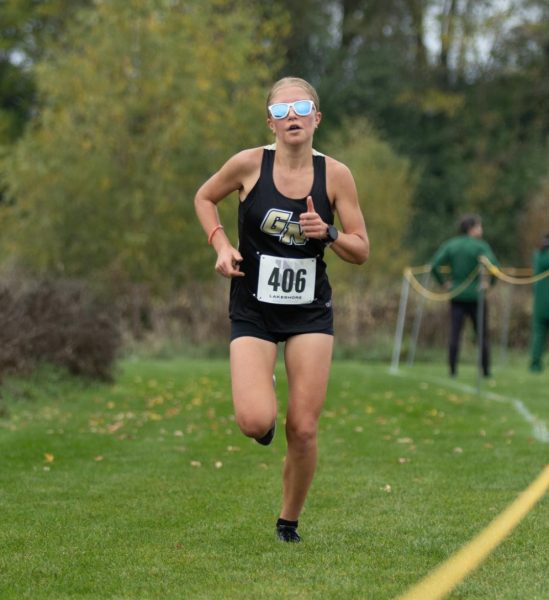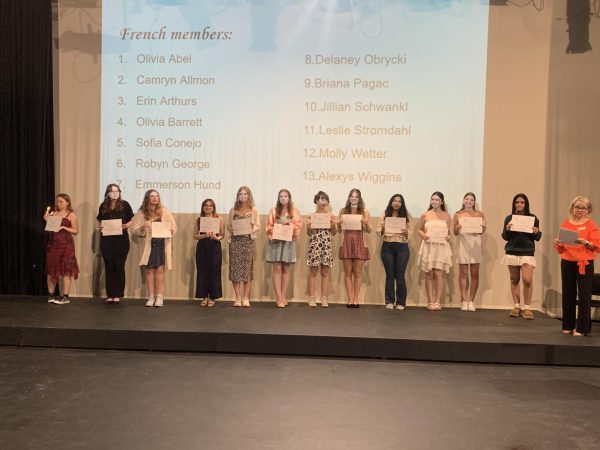Storytime with Ms. Athmann
Q&A with Miss Athmann
Q: When was the moment you knew you wanted to pursue social work and what influenced you?
A: I always wanted to work in a school, but I didn’t know what for. Then in the beginning of college, I started taking classes to be a teacher; then I realized that wasn’t the route I wanted to take. I didn’t want to just lecture at like thirty students, but I wanted to work more like one on one with students or in small groups about the social and emotional side of things instead of just teaching about math or science or language arts or anything.
Q: Who or what inspired you to go into this job?
A: So, I would definitely say my middle school counselor. She kind of inspired me to work with students. In middle school, I was actually a peer mentor. So like when I was in middle school, I would help other peers through their problems, so I was kind of like a mini counselor. Then I just kind of took that as I grew older and it was just helping others, and I realized that’s what I wanted to do.
Q: What moment in your life so far made it so that social work was worthwhile?
A: I think building that rapport with students and having that connection of knowing that I could be their go to person to talk about personal issues, and I can kind of help them through different things that are going on in their lives.
Q: How do you learn from negative experiences with your job or with students?
A: I feel like everything’s kind of a learning process. Well with being an intern right now if something doesn’t go as I planned it would, I then kind of try to think of other outcomes and kind of try to problem solve. That’s a huge thing with social work is problem solving.
Q: How has digital media changed the way you work with students?
A: I definitely think it helps with getting more information from the media and learning more things compared to just reading books. Showing students or teachers something from the media it could get their attention more instead of just like lecturing at them. It’s kind of cool to use that or show different examples or skits from the internet or from the media.
Q: How have your past experiences changed your method of work?
A: By working in the school, each year is different, so you learn from each of your experiences. So things that I did last year working in the school, I can kind of take into this year or I can change it of how I think would be better in my social work field.
Q: What are your greatest interests and hobbies, and what have they taught you in life?
A: I like being active and playing sports. When I was young, I played basketball and softball, and that kind of taught me how to work as a team with others and being around people my age or older, I could kind of connect with them and learn to be around them. Playing sports has kind of made me grow as a person.
Q: What are some of the best stories you have about students?
A: Hearing the good things that they’re doing is what would probably be the best or like things I’ve helped them out with. Also things like them saying: “ I tried to do this and it worked!” and that makes me feel happy. Hearing funny stories is good to, but obviously I won’t go into detail of those.
Q: What is the most important thing you can teach your students?
A: I think the most important thing is that you’re not alone and that there are other people out there that struggle with their mental wellbeing. Also that there are people out there that are there to help you through different challenging things in your life and can help you overcome those things. So it’s kind of important that the students know you’re not alone and there are different resources that you can reach out to to get the help that you need.
Q: Has there ever been a situation with a student that led you to question your ethics?
A: With social work, sometimes it can be hard for ethics because there’s sometimes like a gray area with the confidentiality piece, and who should you tell that to or who shouldn’t tell that to. It’s like a question of when should you and when shouldn’t you, especially with parents involved. You can’t break the confidentiality, so then you have to think ‘are they hurting themselves or is someone hurting them, mm but then sometimes things can fall in between with should I or shouldn’t I? It’s also better with supervisors so you can ask them about it for advice and they can guide you in the right direction.
Q: As times change, how do you feel your students have changed?
A: I feel like over the course of this year so far, I’ve noticed a lot of my students taking the strategies and skills that I’ve taught them and using them out in the real world, and then they come back and tell me “Hey I got to use this skill you taught me and like breathing techniques and it actually really worked”. That’s kind of good to hear that they’re taking what I’ve taught them into consideration and kind of growing.




